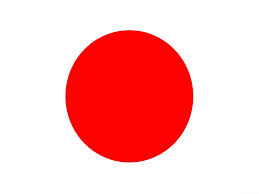RJ GAUDET & ASSOCIATES L.L.C.
"Let us realize the arc of the moral universe is long but it bends toward justice."
Dr. Martin Luther King, Jr.
Japan Enables Small Toehold, In Late 2016, For Class Actions By Consumer Associations
By Robert J. Gaudet, Jr.
In what is likely to yield a trickle rather than a tsunami of justice, Japan will allow class action-type lawsuits filed by consumer associations to seek damages in a new law that will take effect in December 2016.
On Sunday, October 24 at a Halloween barbeque of the Berkeley LLM students, I met a student from Japan, Shoichi Hara, who is on temporary leave from his position as a judge in Japan. We spoke about class actions. Judge Hara subsequently explained to me, by email, the status of Japanese class actions:
“In Japan, the Consumer Court Special Procedure Act (a Japanese-version of the class action) was promulgated on December 11,2013 and will be enforced within 3 years from that day, taking effect in December 2016. Since it has not been enforced yet, there are no cases now. The Act will allow only qualified consumer organizations to sue against business operators instead of allowing each consumer to file a lawsuit. There will be two steps in the procedure. In the first step, a court will decide the presence of legal liability. After declaring the legal duty of defendant in the first step, the court will inform relevant consumers of the procedure and decide each person’s amount of damage in a simple procedure.
Before the Consumer Court Special Procedure Act, Japan previously introduced another Special Act which enabled qualified consumer associations to file a lawsuit for injunction instead of consumers. The average number of cases per year (from 2009) is about 15, which is increasing, but there have not been so many yet. So, Japanese class action or other consumer protection systems have only just started.”
The Consumer Court Special Procedure Act will bring a slight advantage over the status quo. Presently, there are only a few procedural devices available: (1) joinder which, as in the United States, allows numerous individuals to file their own lawsuits and have them consolidated into a single action, (2) representative actions in which representatives can be appointed, upon explicit instructions from each one of the victims, to represent others with “common interests”; and (3) lawsuits for injunctive relief only filed by “certified” consumer associations that are pre-approved by the Prime Minister.[1]
With the new procedure, consumer associations will be able to file actions seeking damages. This is a slight improvement under the older law that only allowed consumer associations to seek injunctive relief. However, given the limited resources of consumer associations, it is not likely there will be a significant number of cases filed under the Consumer Court Special Procedure Act. If, as Judge Soichi reports, only 15 lawsuits for injunctive relief were filed by consumer associations under the older law that took effect in 2007, then similar numbers might be expected under the Consumer Court Special Procedure Act permitting them to seek damages.
There is a hint of paternalism in Japan’s approach. It will allow only consumer associations – not victims themselves – to prosecute lawsuits. And, under the older 2007 law, the Prime Minster has to pre-approve eligible consumer associations and may decertify any class action,[2] giving the Prime Minister the opportunity to exercise political influence over the prosecution of a case for injunctive relief.
Why don’t Japanese legislators trust victims and their lawyers to file suit as is done in the United States? As I mentioned at a conference in Brussels in 2012, Japanese legislators seem to have a paternalistic belief that victims and their lawyers cannot be trusted and that only a quasi-government association should be entrusted with the sacred duty of prosecution. There is no reason to believe a consumer association can prosecute suits more effectively or efficiently than the private bar. Nor am I aware of any empirical evidence to support the paternalistic approach.
The suits that Japanese consumer associations are allowed to file under the 2007 law are limited in scope to unjust contractual clauses and inappropriate solicitations.[3] In addition, the consumer associations must pre-notify the offender to give it a chance to fix the problem before the associations can file suit. It seems likely that similar restrictions may be placed on consumer associations seeking damages under the new law that becomes effective in December 2015.
In its own discussion over collective redress, various governments and actors who submitted comments to the European Union, also, expressed a preference for cases filed by consumer associations rather than private individuals. Therefore, it is not surprising that Japan drew from this European experience, including an irrational paternalism, in drafting its own legislation.[4]
From December 2016, it will be interesting to see how actively the consumer associations do – or do not – use their new powers to seek damages for consumers. Even more interesting, I am curious to see when Japanese legislators become willing to look beyond the paternalistic approach, gather empirical evidence, and brush aside mistrust of American-style class actions to devise a system that could, some day, invigorate the Japanese economy with a true tsunami of justice. But that day will have to wait for perhaps another decade or a subsequent generation.
[1] Sugawara, Ikuo, “The current situation of class action in Japan,” (undated), available at http://globalclassactions.stanford.edu/content/current-situation-class-action-japan (last viewed on Oct. 28, 2015).
[2] Id. at 12, 14.
[3] Id. at 11.
[4] Id. at 16 (“As a result, injunctive relief under the above mentioned consumer group actions was introduced by referring to the systems of the EU countries”).




